Haiti: ‘Finally I own something’
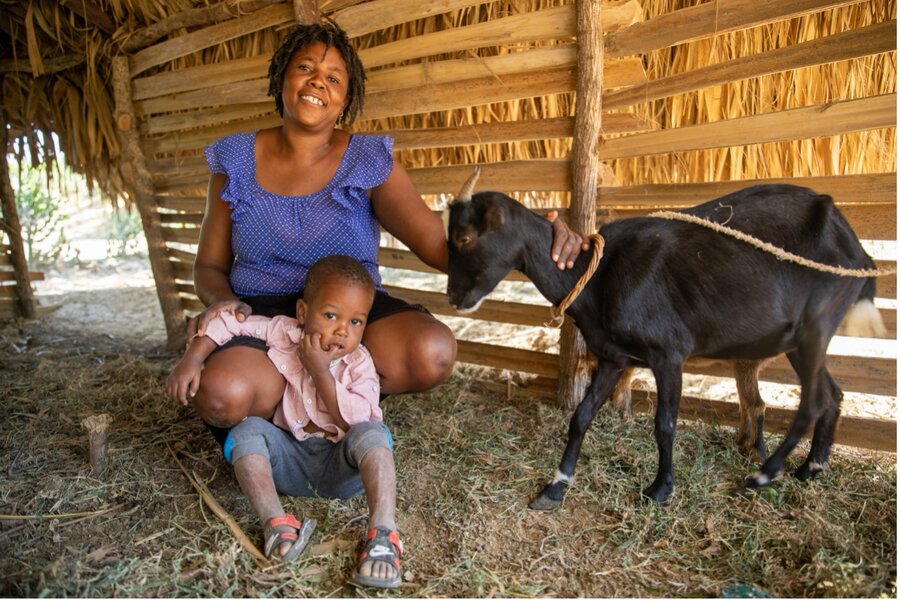
“My goats represent hope,“ says Sainteleine Ertilus, a mother of six children and smallholder farmer in Jean Rabel commune, Northwest Haiti. Standing next to a watering trough that was recently built by the World Food Programme, Ertilus explains how her life has changed thanks to the programmes implemented in her community by WFP to support livelihoods.
In Haiti's commune of Jean Rabel, almost 1,300 families received two goats from WFP. These were purchased directly from local markets to boost the region's economy. Before it started, only wealthy families in the community could own goats.
For the most vulnerable families in Haiti, owning an animal is a traditional safety net because the animals are a source of food and can be sold when a difficult time arrives. One goat can be sold for more than US$150 at a local market.
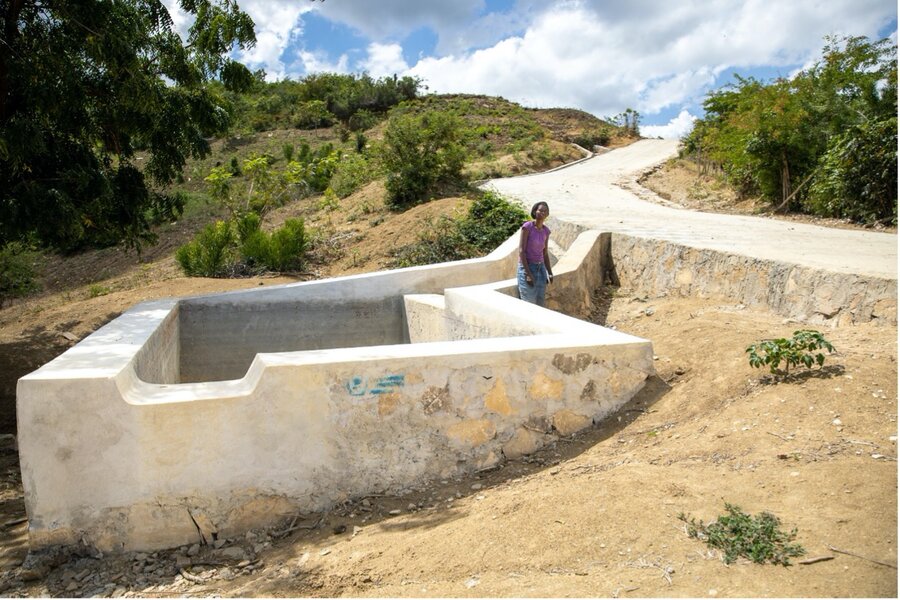
“I have always kept goats for others, but now I can finally say that I own something,” says Ertilus, who prays every night before she goes to sleep for her children and for her goats to be healthy and have many kids. Her prayers were heard when one of her goats had a kid and now the other one is pregnant.
WFP trains people in all aspects of keeping livestock including providing adequate shelter for animals.
WFP has introduced the pase kado system ('passing on the gift' in Creole) which helps community members without goats inherit one from a neighbour whose next generation of goats is fully grown.
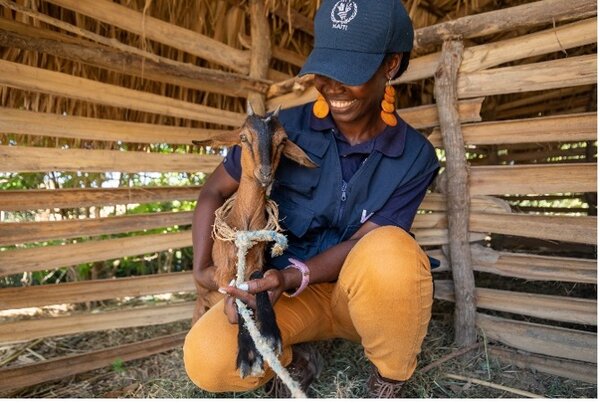
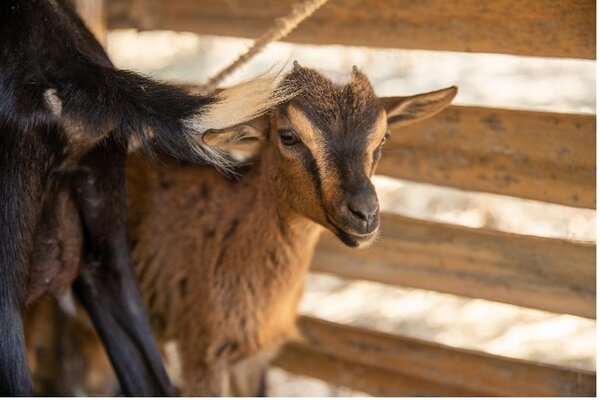
Edina Charles, a smallholder farmer and widowed mother of four children, has owned goats in the past but they all died. Now, she takes care of her goats differently. She gets up early, when there is still dew, to feed them with fresh grass. She feeds them twice a day and brings them water. “The goats are always happy when they see me,” says Edina. One of the goats already had a kid and it will be gifted to her neighbour once it gets bigger.
There are veterinarians present in the community who help take care of the goats for a small fee. When asked how they feel about having to take care of the goats, Edina says: “We do it with joy, it is a pride for us. Now I know that if I have a problem, I have an asset that I can sell.”
WFP’s project has given the community a glimpse of hope during a time when parents are struggling to support their families. Haiti continuously endures floods and droughts and is ranked third among the countries most affected by extreme weather events from 2000 to 2020.
Unprecedented needs threaten a hunger catastrophe
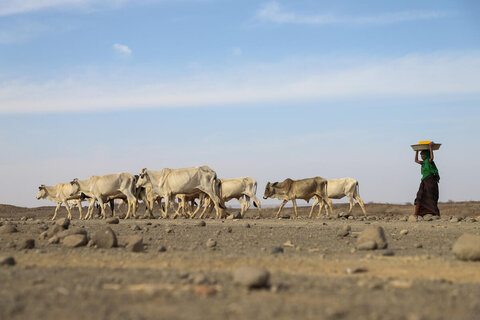
In a year of unprecedented humanitarian needs across the world, Haiti is also one of the countries that are feeling the impacts of the rising costs of fuel and food, with dire consequences for its population. WFP recently warned that rising food inflation threatens Latin America and the Caribbean, with several countries highly dependent on cereal imports, such as Haiti.
Caribbean islands that import a large part of their food are set to feel the brunt as the cost of sea freight soars. In March, WFP alerted that 4.5 million Haitians were experiencing high levels of acute food insecurity, pointing to lower-than-expected humanitarian food assistance and the continued fallout from last August's earthquake as key drivers.
Amidst rising food insecurity, the country braces itself for a third above-average Atlantic hurricane season starting in June, which has the potential to push more people into hunger.
That is why WFP combines food relief assistance with resilience projects such as the one implemented in Jean Rabel commune. Helping people to become self-reliant is the ultimate goal so that, eventually, vulnerable people won't have to rely on emergency assistance.
As part of the programme, which is officially called Food Assistance for Assets (FFA), the community learns about land rehabilitation, irrigation systems, and water conservation that are critical to helping them grow crops, especially when having to face severe weather. FFA provided cash-based assistance to more than 3,000 smallholder farmers in Jean Rabel to help address the immediate needs of families.
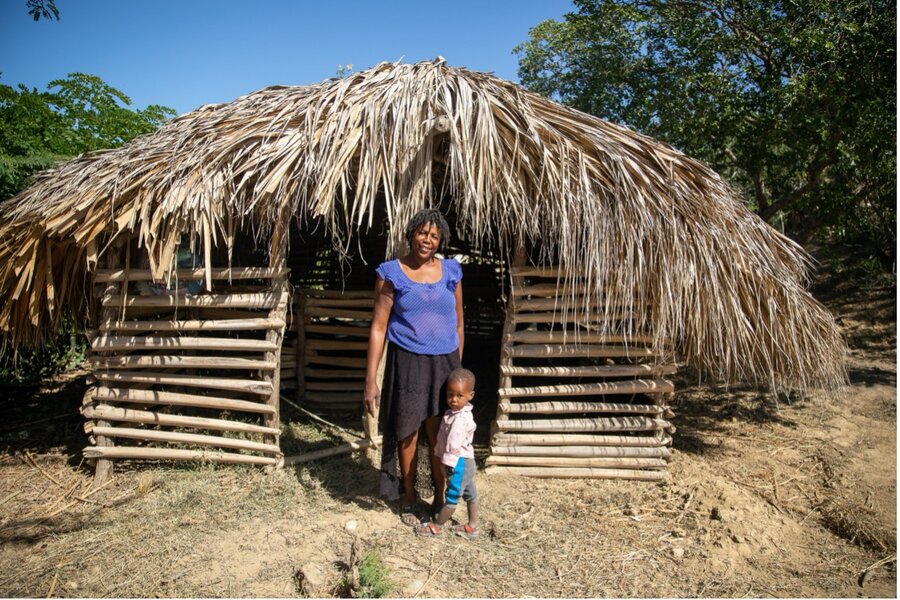
Ewaldy Estil, Senior Resilience Manager of WFP’s implementing partner, Heifer International, explains how the project strengthens social cohesion within the community. For example, for the construction of the goat shelters, the community members work together with the help of their neighbours.
Alessandro Valori, WFP Resilience Officer in Haiti, adds that the main objective of the project is to create food security in rural Haiti. It helps to increase income through sustainable development, combining livestock with agricultural support. The project improves livestock techniques, provides business training, community development as well as building social capital. "Integrating all these programmes helps the population have more resources to endure climate shocks and other hazards," he says.
With funding from Switzerland, three thousand smallholder farmers and vulnerable households have benefited from this project to increase community resilience to floods, drought, and food insecurity.
This year, WFP Haiti’s resilience programmes are supported by Switzerland, Canada, South Korea (KOICA) and the US Agency for International Development (USAID/BHA).
Learn more about WFP's work in Haiti


